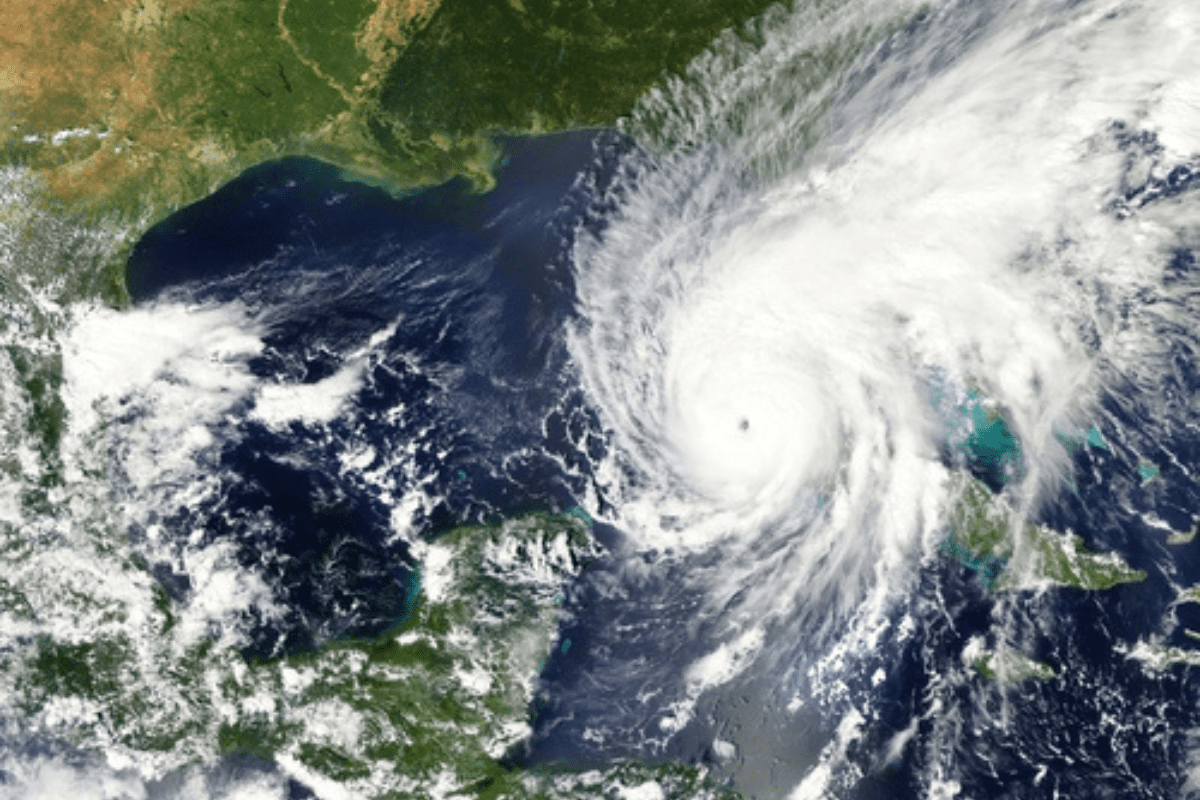
Hurricane Ian heading towards the coast of Florida in September 2022. (Image via Shutterstock/lavizzara).
AccuWeather forecasters expect between 20 and 25 named storms in the Atlantic this season. Of those storms, eight to 12 are expected to become hurricanes (74 mph winds or greater), with four to seven reaching Category 3 or higher (at least 111 mph).
Meteorologists anticipate an extra turbulent hurricane season in the tropics that could approach a record-setting pace, according to a new forecast from AccuWeather released on Wednesday.
Hurricane season officially begins on June 1 and runs through the end of November, but some indicators suggest it could get an early start this year.
“The 2024 Atlantic hurricane season is forecast to feature well above the historical average number of tropical storms, hurricanes, major hurricanes and direct U.S. impacts,” AccuWeather Lead Hurricane Forecaster Alex DaSilva said.
AccuWeather forecasters expect between 20 and 25 named storms in the Atlantic this season. Of those storms, eight to 12 are expected to become hurricanes (74 mph winds or greater), with four to seven reaching Category 3 or higher (at least 111 mph).
Last year, there were 19 named storms, four of which impacted the US directly, including Hurricane Idalia, which made landfall in Florida’s Big Bend as a Category 3.
One driving factor of a more active hurricane season is warm water, which fuels tropical storms.
“Sea-surface temperatures are well above historical average across much of the Atlantic basin, especially across the Gulf of Mexico, Caribbean and the Main Development Region [for hurricanes],” DaSilva explained.
The other factor is tied to the Pacific Ocean, when hotter waters associated with El Niño are expected to cool with the onset of La Niña. The faster the transition to La Niña occurs, the more active the hurricane season is likely to be, AccuWeather forecasters say.
“The Texas coast, Florida Panhandle, South Florida and the Carolinas are at a higher-than-average risk of direct impacts this season,” DaSilva said. “All residents and interests along the U.S. coast, including Puerto Rico and the Virgin Islands, should have a hurricane plan in place and always be fully prepared for a direct impact.”
Politics

Housing market cools along Florida’s Gulf Coast
The uptick in the construction of new housing followed the influx of newcomers to Florida during the pandemic, but that boom is now tapering off....



Get ready, Orlando: Westcourt District promises thrilling entertainment, more
The district will be built in an 8.5-acre complex next to the Kia Center at West Church Street and South Hughey Avenue. Orlando residents and...
Local News



Housing market cools along Florida’s Gulf Coast
The uptick in the construction of new housing followed the influx of newcomers to Florida during the pandemic, but that boom is now tapering off....



Get ready, Orlando: Westcourt District promises thrilling entertainment, more
The district will be built in an 8.5-acre complex next to the Kia Center at West Church Street and South Hughey Avenue. Orlando residents and...


